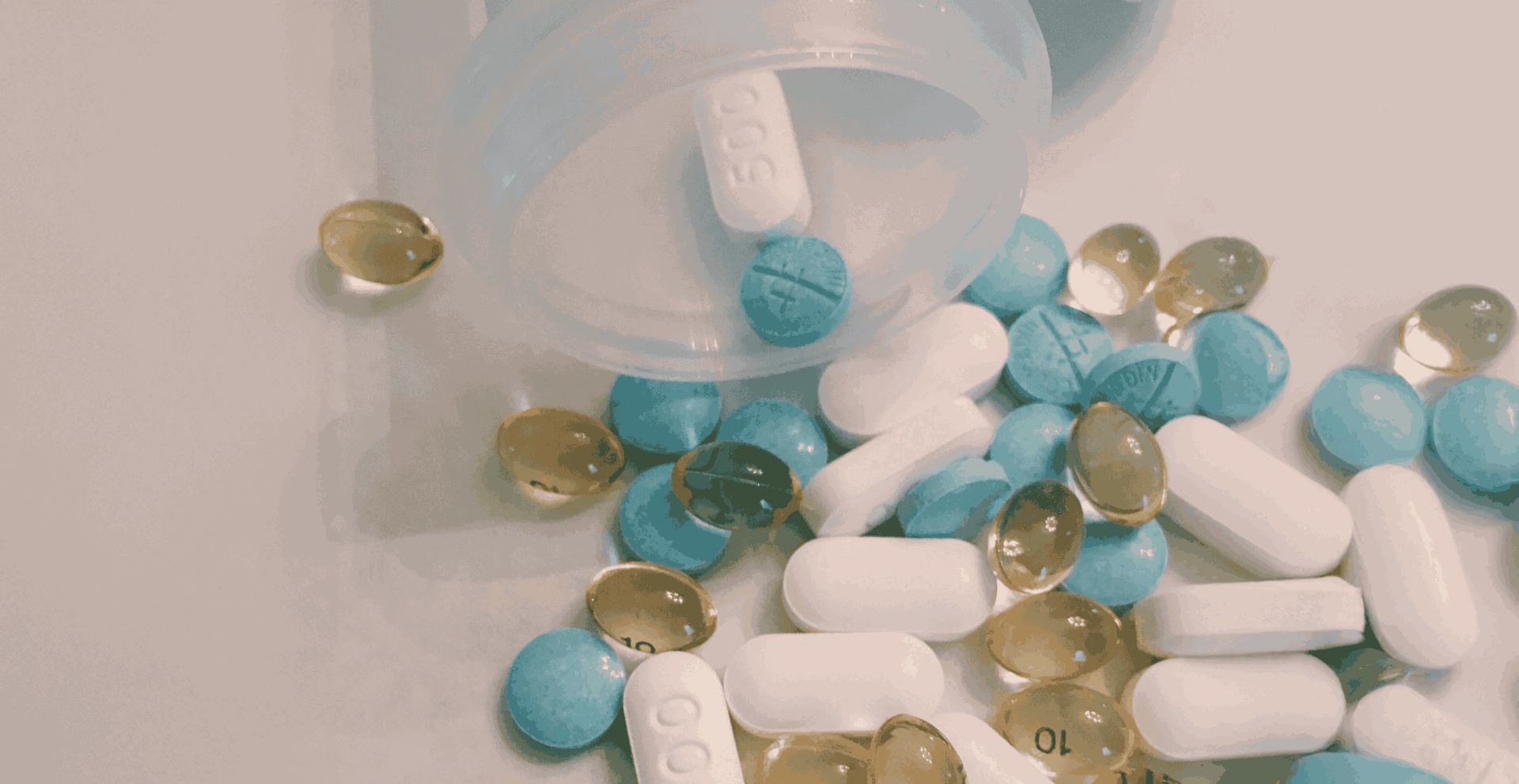PTSD Activities for Adults Coping with Depression Symptoms
Coping with depression and PTSD can be a challenging journey, especially for those who have experienced trauma.
Post-traumatic stress disorder and major depressive disorder often go hand in hand, making it crucial to find effective ways to manage symptoms and promote healing.
In this blog, we explore how engaging in PTSD activities for adults can help cope with depression symptoms while healing from trauma.
Whether you have a formal diagnosis of MDD, struggle with treatment-resistant depression, or want to explore new avenues for self-care, these activities can offer a sense of relief and support in your healing journey.
The Power of Distraction Through Play
Play, in its many forms, serves as an effective distraction technique for those battling the dual challenges of PTSD and depression. Engaging in playful activities can momentarily shift one's focus away from distressing thoughts, enabling an immersion in the joy and spontaneity of the moment.
Play a board game with friends, let loose with an adult coloring book, immerse yourself in a video game, play catch outdoors, or whatever else engages your sense of play. The act of play fosters a light-heartedness that contrasts the heaviness often felt by those dealing with PTSD and depression, offering a natural and accessible way to uplift mood and promote positive mental health.
Research indicates that play can divert attention from negative thought cycles, encourage connections with others, and help to regulate emotions.
Journaling as a Therapeutic Outlet
Journaling can empower individuals to articulate their innermost thoughts and emotions, offering a form of self-expression that might otherwise remain unvoiced.
Through narrative writing, one can chart the nuances of one's mental health journey, identifying patterns and uncovering insights that may pave the way toward greater understanding and healing. It's a reflective process that can illuminate the shadows of trauma and despair, fostering a dialogue with oneself that encourages growth and emotional resilience.
For many, journaling is a foundation for recovery because it allows them to process their experiences at their own pace, without fear or the pressures of external judgment. Engaging regularly in this practice can offer clarity and comfort during moments of turmoil and doubt.
Finding Solace in Artistic Expression
Art unleashes a powerful avenue for individuals grappling with PTSD and depression to explore and express their inner world. It is a nonjudgmental space where emotions, often too complex for words, can be conveyed through colors, shapes, and textures.
Through art therapy, individuals can explore their unique voices and navigate the depths of their emotions differently. Creating becomes a form of meditation, centering the mind and providing a temporary escape from the constant noise of negative thoughts.
For many, the process of artistic creation is not just about the final piece but the journey of transformation it symbolizes — from turmoil to tranquility, from fragmentation to wholeness. Engaging in creative endeavors can kindle a sense of accomplishment and self-worth.
Whether it's through painting, sculpting, or crafting, each act of artistic creativity is a step toward reclaiming a sense of identity and purpose obscured by challenging mental health symptoms.
The Healing Nature of Gardening
Immersing oneself in gardening activities can provide a profoundly therapeutic and enriching experience, especially for those navigating the complexities of PTSD and depression.
Nurturing plants, from sowing seeds to watching them bloom, mirrors the journey of personal growth and healing. This connection to the cycle of life and the rhythm of nature offers a profound sense of grounding and stability.
Gardening encourages mindful engagement with the present. Focusing on the task, whether weeding, planting, or watering, helps distract from persistent negative thoughts and can create a peaceful refuge. It also stimulates the senses, from the earthy smell of soil to the vibrant colors of flowers, enhancing one's sensory experience of the world.
Engaging with the natural environment can reduce feelings of isolation, replacing them with a comforting sense of belonging to something larger than oneself. Through the simple, repetitive actions involved in gardening, individuals find meditative calmness, fostering a healing space where both body and mind can flourish.
Practicing Mindfulness for Inner Peace
Mindfulness anchors individuals in the present moment. This practice involves a gentle yet deliberate focus on one's immediate experience, encouraging a nonjudgmental stance towards internal thoughts, feelings, and bodily sensations.
Through mindfulness, individuals learn to observe their inner world while practicing not getting caught up in distressing thoughts or memories. Exercises such as mindful breathing, guided imagery, and body scans are great tools for navigating challenging emotions.
By regularly incorporating mindfulness into daily life, those affected by PTSD and depression can discover a pathway to enhanced emotional regulation and a deepened sense of peace. This approach alleviates symptoms and cultivates a profound connection to the here and now that builds resilience and self-compassion.
Calming Exercise Like Tai Chi
Tai Chi is a low-impact option for those seeking relief from the intertwined symptoms of PTSD and depression. This ancient Chinese martial art emphasizes mindfulness, with each movement flowing seamlessly into the next, creating a sort of "dance" that harmonizes body and mind.
Practitioners of Tai Chi often report a heightened sense of balance and inner calm, as the exercises gently encourage a focus on the present moment, mitigating rumination and anxiety. The rhythmic motions and controlled breathing integral to Tai Chi can help decrease stress levels, strengthen emotional stability, and improve mental health.
As individuals engage with this practice, they may also notice improvements in physical health, such as increased flexibility and strength, which can contribute to a more positive outlook and enhanced ability to cope with daily challenges.
Tai Chi's adaptability makes it accessible to people of all ages and fitness levels. It offers a supportive pathway to tranquility and resilience without the need for specialized equipment or intense physical exertion.
The Therapeutic Effects of Music
Engaging with music, whether by listening, playing an instrument, or singing, can open a gateway to profound emotional release and self-expression. This auditory experience can significantly impact the mind, offering an escape from the cyclical nature of depressive thoughts and traumatic memories.
The rhythms and melodies of music encourage a sense of presence, momentarily suspending the passage of time and creating a buffer against the external world's stresses. For many, music becomes a sanctuary where emotions can flow freely without judgment, facilitating a deeper connection with one's inner self.
It's not just about listening or performing; the resonance of music within the individual can ignite a healing process, bridging the gap between heartache and hope. The vibrations and harmonies have a unique way of touching the soul, often reaching places words cannot, aiding the journey toward recovery and emotional well-being.
Engaging in music therapy or simply incorporating music into daily routines can enhance the therapeutic effects of other treatments.
Integrating Trauma Activities with Clinical Treatments
For individuals navigating the path to recovery from PTSD and depression, incorporating a blend of therapeutic activities with clinical treatments can lead to more robust outcomes.
Activities like mindfulness, artistic expression, and engaging with music complement traditional therapies by providing unique avenues for emotional exploration and expression. These endeavors can significantly amplify the benefits of clinical treatments such as Transcranial Magnetic Stimulation (TMS) therapy, cognitive-behavioral therapy (CBT), and pharmacotherapy.
For instance, journaling, a reflective practice, may enhance the introspective work done in CBT, allowing for deeper insights during sessions. Similarly, the calming effects of practices like Tai Chi can work synergistically with TMS therapy by reinforcing neural pathways associated with emotional regulation.
Collaborating closely with healthcare providers to tailor a personalized blend of activities and treatments ensures that the therapeutic journey addresses the multifaceted nature of healing from trauma and depression. This integrative approach targets symptom relief while fostering a holistic sense of well-being to help individuals reclaim control over their mental health.
Find PTSD and Depression Treatment in the Bay Area
If you or a loved one is battling PTSD, major depressive disorder, or treatment-resistant depression, there's hope and help available right here in the Bay Area.
Our mental health clinic, Friendswood Psychiatry, specializes in Transcranial Magnetic Stimulation (TMS) therapy, including rTMS. This innovative, FDA-approved treatment has shown remarkable success in helping individuals achieve significant relief from their symptoms.
Unlike traditional treatments, TMS therapy is a non-drug, non-invasive option that stimulates nerve cells in the brain to improve mood and alleviate the symptoms of depression and anxiety without the need for surgery, sedation, or any recovery time. It's particularly effective for those who haven't found relief with medications. TMS therapy has also been used off-label to address a range of conditions, including anxiety, insomnia, chronic pain, and more, offering a versatile approach to mental health and wellness.
Contact us today to discover why we're the Bay Area's leading choice for TMS therapy and how we can support you or your loved one on the journey toward healing and hope.
Pregnant women undergoing TMS therapy experience relief from debilitating symptoms of depression, allowing them to reclaim a sense of normalcy during a transformative time.
Select Cited Sources:
Andero Uusberg, Ravi Thiruchselvam, James J. Gross, Using distraction to regulate emotion: Insights from EEG theta dynamics, International Journal of Psychophysiology, Volume 91, Issue 3, 2014, Pages 254-260, ISSN 0167-8760, https://doi.org/10.1016/j.ijpsycho.2014.01.006.
Schouten, Karin Alice & Hooren, Susan & Knipscheer, Jeroen & Kleber, Rolf & Hutschemaekers, Giel. (2018). Trauma-Focused Art Therapy in the Treatment of Posttraumatic Stress Disorder: A Pilot Study. Journal of Trauma & Dissociation. 20. 1-17. 10.1080/15299732.2018.1502712.

HELPFUL LINKS
SCHEDULE A CONSULTATION
It's important to know that you are not alone. You can get help with depression today!
WE SUPPORT MENTAL WELLNESS
- Depression
- Anxiety
- ADHD
- OCD
- Adjustment Disorders
- Life Transitions
- Autism Management
- Binge Eating Disorders
- Smoking Cessation







